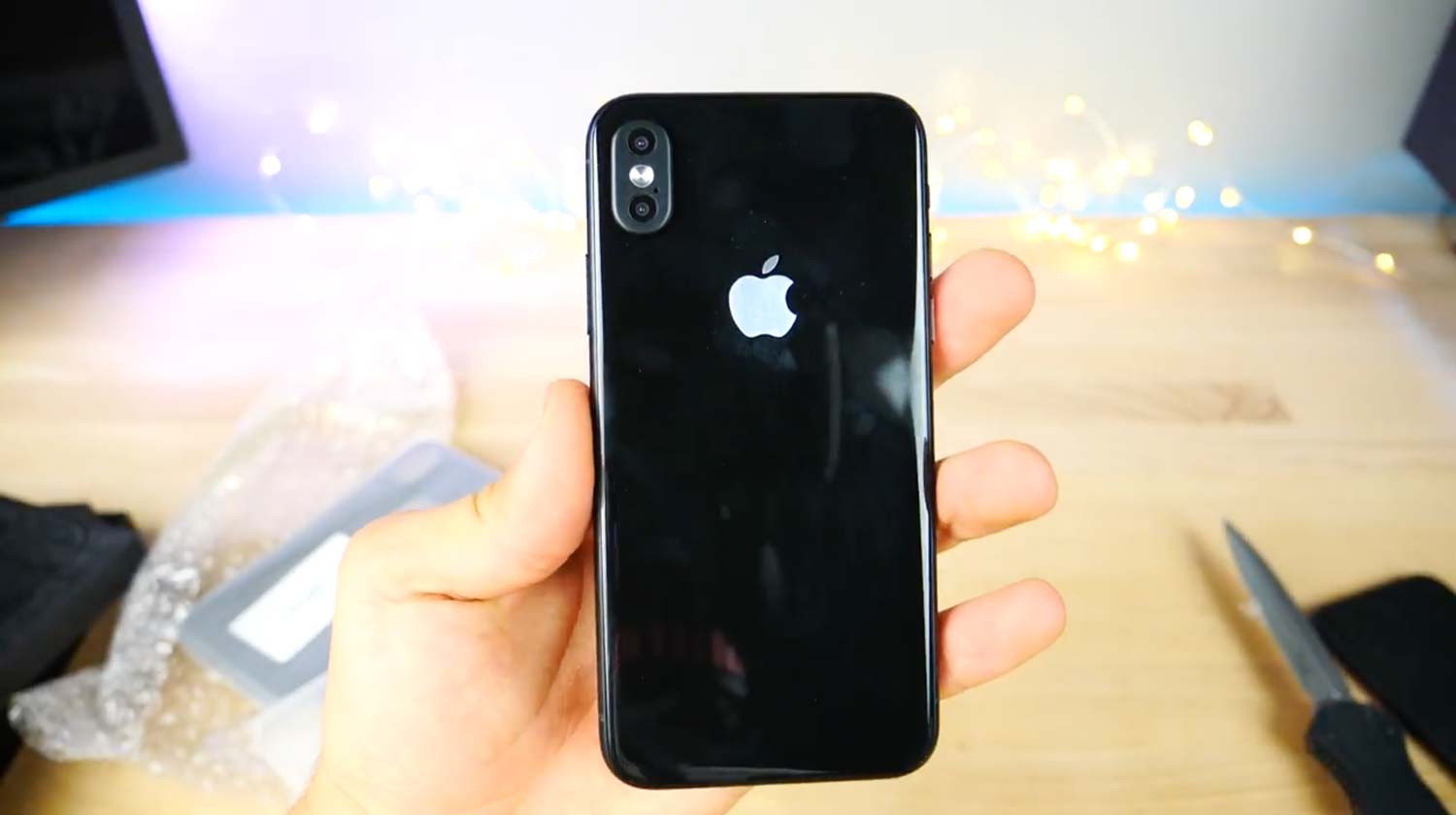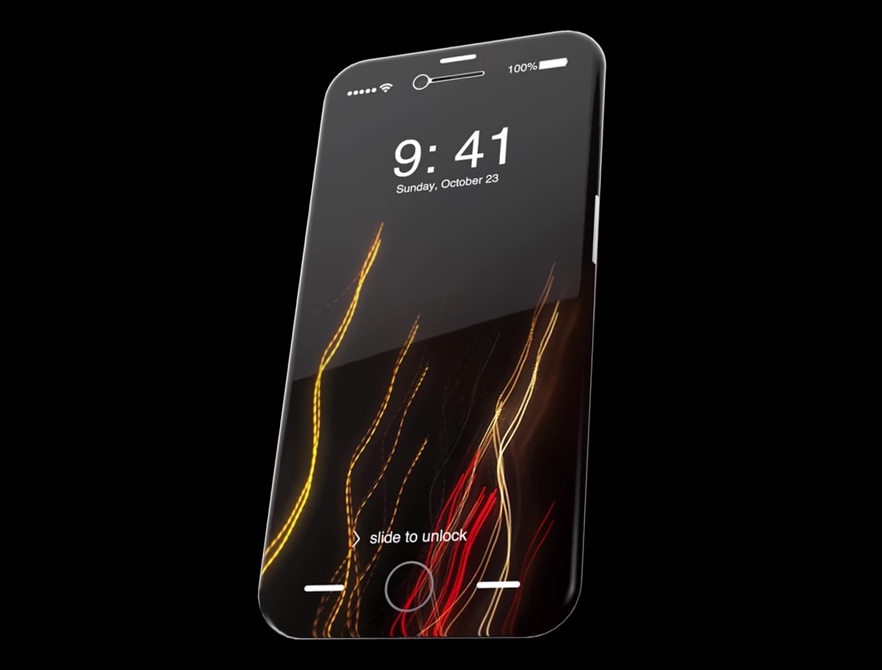iPhone 8 Will Be a Smash Hit Even at $1,200
A high price tag and severely limited supply will only make the iPhone 8 more irresistible.
The iPhone 8 will sell like hotcakes — even if it costs more than $1,000.

Rumors about the device, which Apple will officially unveil next week during a Sept. 12 press event in Cupertino, California, have been swirling for close to a year. Leaked details and images of the new phone make it look like Apple's biggest iPhone redesign in years — maybe ever. And reports about production delays that could limit the supply of the device will only make the iPhone 8 — or iPhone X, iPhone Pro, iPhone Edition or whatever its official name will be — even more appealing, analysts say.
The phone will likely sell out, no matter how cutting-edge its features are (or aren't) or how big its price tag happens to be.
What to expect from the iPhone 8
Wireless charging, facial recognition with biometric phone unlocking, a new dual-lens camera module optimized for augmented reality, a virtual home button to replace the physical one, and an edge-to-edge OLED display will all reportedly be part of Apple's overhaul of its flagship iPhone.
You can find Android flagships with the same litany of features for hundreds of dollars less than the iPhone 8's rumored price. But that won't matter to potential buyers, said Carolina Milanesi, principal analyst at market research firm Creative Strategies.

"It's rare that Apple is first with something, [but] they are always able to implement that feature or technology in a way that delivers more from an experience perspective," Milanesi said. "Nokia had wireless charging seven years ago. It didn't save them. How they implement it — that's what makes the difference with Apple. It might be the same on paper, but when they implement it, they make sure the 'wow' moment is there."
Take Apple's AirPods, for instance, which weren't the first cordless Bluetooth earbuds on the market. Yet the experience of pairing AirPods to an iPhone, which occurs seamlessly and effortlessly, is an example of how Apple might be able to elevate the technologies in the iPhone 8 to make them seem more magical than the same features already included in rival Android devices.
Sign up to get the BEST of Tom's Guide direct to your inbox.
Get instant access to breaking news, the hottest reviews, great deals and helpful tips.
Apple's biggest challenge: making the regular iPhone a strong enough product that people are clamoring to buy that.
In a survey of 1,000 smartphone owners, Creative Strategies found that 21 percent of those who were interested in upgrading to the iPhone 8 said they would buy one no matter what features it has. Only 18 percent said price was a factor that might deter them from buying the iPhone 8.
High demand, short supply
Like the AirPods, which were delayed for months after Apple unveiled them last fall and then were next to impossible to track down in-store, iPhone 8 buyers can expect to face weeks- or even months-long delivery times after preorders open. According to a Wall Street Journal report this week, Apple's decision to specialize its OLED displays by separating the iPhone's touch panel from its display has led to production slowdowns. That means the iPhone 8 will be in high demand with severely limited supply.
That constraint could lead to an insanely high price tag — up to $1,200, some Apple watchers and analysts have speculated. For people who balk at spending more than $1,000 on a phone or who don't want to wait for a new device, Apple is expected to also introduce an iPhone 7s and 7s Plus to its lineup, and those devices likely will be priced in the ballpark of Apple's current phones. The company's challenge will be to make those phones worth the upgrade, either in terms of price or new features.
"Apple will sell as many $1,200 iPhones as it can make," said Avi Greengart, research director of consumer platforms and devices at market research firm GlobalData. "But that $650 iPhone has to be compelling so it retains its incredibly sticky ecosystem and high upgrade rate. You don't want people who have no intention or can't find the product to go to competitors because there aren't enough changes to the base model. That is Apple's biggest challenge: making the regular iPhone a strong enough product that people are clamoring to buy that."
There haven't been as many rumors about the 7s and 7s Plus as there have been about its premium sibling, but Bloomberg reported in August that the iterative devices will sport faster processors. The more modest iPhone updates are also expected to add wireless charging, and images of what appears to be the iPhone 7s Plus from noted Apple leaker Sonny Dickson show a glass back instead of an aluminum one on the new phones.
If Apple doesn't make significant changes to the iPhone 7s line or bring its price down, the company risks losing potential upgraders to Android, Greengart said.
“Samsung [has] a $650 phone [the Galaxy S8] that looks like it's from the future — curved glass; a long, narrow form factor; all sorts of features like wireless charging," Greengart said. "That's a pretty great phone, and it usually sells in the $650-$700 range. If Samsung can make the case that the equivalent iPhone is not much of an upgrade, that would give Samsung its biggest opportunity in years."
Can Apple impress consumers with not just one, or two, but three new iPhones this fall? We'll find out in a few days.
Caitlin is a Senior editor for Gizmodo. She has also worked on Tom's Guide, Macworld, PCWorld and the Las Vegas Review-Journal. When she's not testing out the latest devices, you can find her running around the streets of Los Angeles, putting in morning miles or searching for the best tacos.
